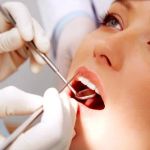How to Maintain Healthy Teeth and Gums After 50: Essential Tips for a Lifetime of Smiles
- Why Oral Health is Important After 50
- Common Dental Changes After 50
- Top Tips for Maintaining Healthy Teeth and Gums
- How to Prevent Gingivitis and Other Gum Issues
- Real-Life Stories of Oral Health Success After 50
Why Oral Health is Important After 50
As we age, taking care of our health becomes even more essential. Oral health, in particular, can have a significant impact on overall well-being. By the time we reach 50, many of us may begin to experience changes in our teeth and gums, which is why maintaining healthy teeth and gums after 50 becomes a priority.
Good oral hygiene isn’t just about avoiding cavities and gum disease. Research has shown that poor oral health can contribute to more serious conditions, such as heart disease, diabetes, and even dementia. Regular dental checkups and proper daily care can help prevent these risks and keep your smile bright and healthy for years to come.
Common Dental Changes After 50
As you reach your 50s and beyond, there are several common changes that may occur in your mouth. Understanding these changes is key to taking proactive steps in maintaining oral health.
1. Gum Recession
Gum recession becomes more common as we age. This condition exposes more of your tooth's surface and can lead to tooth sensitivity and a higher risk of decay. Receding gums are often caused by factors such as brushing too hard, genetics, and gum disease.
2. Dry Mouth
Saliva plays a crucial role in neutralizing acids in the mouth, washing away food particles, and preventing tooth decay. As we age, the production of saliva can decrease, leading to a condition called dry mouth. Dry mouth can cause discomfort and increase the risk of cavities and gum disease.
3. Tooth Enamel Wear
Over time, enamel, the hard outer layer of your teeth, can wear down. This can result in tooth sensitivity and an increased likelihood of cavities. Teeth grinding, often linked to stress, can also contribute to enamel erosion.
4. Increased Risk of Cavities
As we age, the risk of developing cavities increases, especially if gum recession has occurred. Exposed tooth roots are more susceptible to decay, and if oral hygiene isn’t properly maintained, plaque buildup can lead to more severe issues.
Top Tips for Maintaining Healthy Teeth and Gums
Maintaining healthy teeth and gums after 50 requires consistent care. Here are some tips to help ensure that your smile remains vibrant and strong:
1. Brush Twice a Day
Brushing your teeth at least twice a day is essential for removing plaque and preventing tooth decay. Use a soft-bristled toothbrush and fluoride toothpaste to gently clean your teeth. Be sure to brush along the gum line, as this area can be prone to plaque buildup.
2. Floss Daily
Flossing is just as important as brushing, especially when it comes to cleaning between your teeth and along the gum line. Use a gentle sawing motion to avoid damaging your gums. Flossing daily helps prevent gum disease and reduces the buildup of plaque and tartar.
3. Stay Hydrated
Drinking plenty of water throughout the day can help keep your mouth hydrated and reduce the risk of dry mouth. Water helps wash away food particles and bacteria, preventing cavities and gum issues.
4. Eat a Healthy Diet
A balanced diet rich in fruits, vegetables, and whole grains supports not only your overall health but also your oral health. Foods high in calcium, such as dairy products, leafy greens, and fortified foods, can help strengthen your teeth and bones.
5. Visit the Dentist Regularly
Regular dental checkups are crucial for detecting problems early and preventing more serious issues. Your dentist can help monitor your oral health, perform professional cleanings, and catch signs of gum disease or cavities before they worsen.
6. Use Mouthwash
Using an antimicrobial mouthwash can help reduce plaque, fight bacteria, and keep your gums healthy. Choose a mouthwash that contains fluoride to help protect your teeth from cavities.
How to Prevent Gingivitis and Other Gum Issues
Gum disease is one of the most common oral health issues, particularly after the age of 50. Gingivitis, the early stage of gum disease, can be reversed with proper care. However, if left untreated, it can progress to periodontitis, which can lead to tooth loss.
1. Maintain Proper Oral Hygiene
Brushing and flossing regularly are the most important steps in preventing gingivitis. Proper hygiene helps remove plaque from the teeth and gums, preventing the buildup of bacteria that causes gum inflammation.
2. Quit Smoking
Smoking is a major risk factor for gum disease. It weakens your immune system and reduces blood flow to your gums, making it harder for them to heal. Quitting smoking can significantly improve your gum health and overall oral hygiene.
3. Use a Soft-Bristled Toothbrush
Using a soft-bristled toothbrush helps prevent damage to the gums while still effectively removing plaque. Avoid brushing too hard, as this can contribute to gum recession and increase your risk of gingivitis.
Real-Life Stories of Oral Health Success After 50
Many people in their 50s and beyond have successfully maintained their oral health through regular care and smart habits. For example, Jane, a 58-year-old retiree, has made it a point to visit her dentist twice a year and maintain a daily routine of brushing and flossing. She shares, “I used to struggle with gum sensitivity, but once I started taking my oral health seriously, I noticed a big improvement. It’s all about consistency!”
Another inspiring story comes from Michael, 62, who overcame significant tooth sensitivity by switching to fluoride toothpaste and using a soft-bristled toothbrush. “The small changes I made in my routine have kept my teeth and gums healthier than ever,” he says. “I feel more confident about my smile now than I did in my 40s!”
By following these tips and committing to a regular oral care routine, you can maintain healthy teeth and gums well into your golden years. For more personalized advice and professional care, consider visiting Dentistry Toothtruth to learn more about maintaining your oral health after 50.







 Loma Linda University Center for Dentistry and Orthodontics4.0 (24 review)
Loma Linda University Center for Dentistry and Orthodontics4.0 (24 review) Dover Dental Center4.0 (44 review)
Dover Dental Center4.0 (44 review) Smile Fixer RVA: Stacy Lukanuski DDS, D.B.A4.0 (249 review)
Smile Fixer RVA: Stacy Lukanuski DDS, D.B.A4.0 (249 review) Handpiece Solutions, Inc.3.0 (7 review)
Handpiece Solutions, Inc.3.0 (7 review) McDonough Endodontic Center4.0 (333 review)
McDonough Endodontic Center4.0 (333 review) Smile Academy Pediatric Dentistry4.0 (48 review)
Smile Academy Pediatric Dentistry4.0 (48 review) The Importance of Oral Health Education During Pregnancy for a Healthy Pregnancy
The Importance of Oral Health Education During Pregnancy for a Healthy Pregnancy Best Tips for Brushing Your Teeth Properly for Healthy Gums: Essential Techniques for Oral Health
Best Tips for Brushing Your Teeth Properly for Healthy Gums: Essential Techniques for Oral Health Why Skipping Dental Checkups Can Lead to Bigger Oral Health Problems
Why Skipping Dental Checkups Can Lead to Bigger Oral Health Problems Advantages of Porcelain Dental Restorations
Advantages of Porcelain Dental Restorations How Can Diabetes Cause Tooth and Gum Problems? Preventing and Managing Oral Health Issues
How Can Diabetes Cause Tooth and Gum Problems? Preventing and Managing Oral Health Issues Healthy Habits for Promoting Good Oral Health and Hygiene: Tips for a Healthy Smile
Healthy Habits for Promoting Good Oral Health and Hygiene: Tips for a Healthy Smile